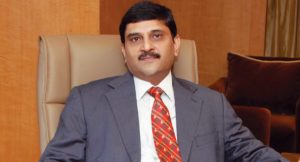Gowri Shankar Subramanian, CEO, Aspire Systems, global technology services firm
As the story goes
In 2004, when we were a US $2 million company, we decided to build our own campus in Siruseri and bought land there. It was a high risk decision and we knew it. We decided to go ahead and take that chance and it has worked in our favour today. Having said that, it could have backfired on us. In 2004, land was not that expensive and this decision made a big difference to us. For an IT company like ours, having a real estate asset worked immensely in our favour as it served as collateral for getting a bank loan.
In another instance, when we started focusing on software product engineering early in our company’s lifecycle, we did not realise that it could provide a continuing and possibly growing revenue stream from the same customer (as long as their business is growing well), every year. This is because product engineering and new version releases are a recurring activity. In retrospect, this was certainly a lucky break that helped us grow our revenues year-on-year without always looking out for new customers, even, when our new sales for a particular year was not very strong. As an example, a couple of our early customers, SciQuest and WideOrbit, still constitute a good portion of our revenues even after ten years. As they grew multi-fold (such as SciQuest becoming public on the NASDAQ), our business with them also grew, which is something we could not foresee ahead of time.
How you see it
Luck comes with perseverance. As long as we continue to do what we have set out to do without stopping or giving up, we have a strong chance of getting lucky. Yes, we need the right breaks, but if we do not attempt to capitalise on luck, we will never experience it.
What’s your Plan L?
The only thing that you can plan for is to keep trying and keep experimenting. Experiments and trials lead us to the right solution. One thing we should be careful about is to ensure that the trials don’t break us completely. These trials must be small enough so that they don’t take you out of business.





